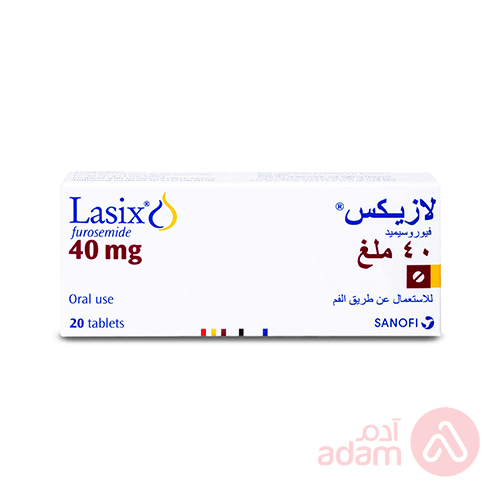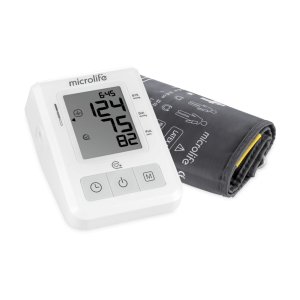Lasix 40Mg | 20Tab


Lasix 40Mg | 20Tab
Requires RxLasix 40 mg
Lasix medicine is a diuretic, so it works to rid the body of excess water and fluids, which reduces swelling of the feet and the occurrence of edema.
It is used to treat high blood pressure and congestive heart failure.
Diuretic for slimming, lasix is a medicine for slimming
Lasix treatment contains Furosemide 40 mg, which helps to remove excess fluid from the body - not fat - through urine, which makes the patient feel a decrease in weight, as a result of the excretion of these fluids.
However, Lasix tablets or Lasix 20 mg injection should not be used for weight loss, as it is a very effective treatment and may affect the electrolyte balance in the body, as well as cause blood pressure disturbances if used without a prescription.
Lasix for pregnant women
Pregnant women should not use the diuretic Lasix unless under medical supervision.
What are the uses of Lasix?
Furosemide 40
It is used to treat fluid buildup (edema) associated with congestive heart failure, liver, or kidney disease.
This medication is used alone or with other medications to treat high blood pressure.
Furosemide for weight loss
Furosemide is a diuretic, so it works to get rid of excess fluids in the body, and reduces swelling and edema. It should not be used for weight loss purposes without medical supervision, as it rids the body of excess fluids and water, not fats.
What are the contraindications for using Lasix?
It is forbidden to use the drug without consulting a specialist doctor in the following cases:
Hypersensitivity to furosemide or any of its ingredients, or to sulfonylureas or sulfites.
anuria
Patients with severe hyponatremia or electrolyte imbalances and patients in hepatic coma until improvement.
What are the side effects of Lasix?
Most side effects are dose related.
Common symptoms:
Low sodium. Low potassium.
dehydration, gout;
Dizziness.
a headache.
Blurred vision.
Reduction of Blood pressure.
Nausea, constipation.
May affect hearing (may cause temporary hearing loss, especially when used intravenously or intramuscularly).
What are the precautions for using Lasix?
Use with caution under the supervision of a doctor in the following cases:
Excessive diuresis may cause dehydration, hypovolemia with circulatory collapse and possibly vascular occlusion and thrombosis, particularly in elderly patients.
As with any effective diuretic, electrolyte imbalances such as sodium may occur, particularly in patients taking large doses and on a salt-restricted diet.
Hypokalemia may develop with furosemide, particularly with rapid diuresis, insufficient oral potassium intake, when liver cirrhosis is present, or during the use of corticosteroids, adrenocorticotropic hormones, licorice in large amounts, or prolonged use of laxatives.
Digoxin may increase the metabolic effects of hypokalemia.
All patients receiving furosemide should be observed when these signs or symptoms of a fluid or electrolyte imbalance (hyponatremia, hypochloremia, hypokalemia, hypomagnesaemia, or hypocalcemia) develop, namely: muscle pain dry mouth thirst weakness lethargy, drowsiness, insomnia, or cramps, muscle fatigue, hypotension, oliguria, tachycardia, arrhythmia, or gastrointestinal disturbances such as nausea and vomiting.
In patients with severe symptoms of urinary retention (due to bladder emptying disorders, prostatic hypertrophy, and urethral strictures), furosemide may cause severe urinary retention related to overproduction and urine retention. Thus, these patients require close monitoring, especially during the initial stages of treatment.
In patients with hypoproteinemia, the effect of furosemide may be weakened and may cause ear toxicity as well as rapid injection, acute renal failure, use of doses more than the permissible dose, use of other drugs that have toxicity to the ear such as aminoglycoside antibiotics.
Patients allergic to sulfonamides may also be allergic to furosemide.
Pregnancy:
In general, diuretics should be avoided during pregnancy, as they may cross the placenta and harm the fetus.
Lactation:
Furosemide is excreted in breast milk. Caution should be exercised when administering it to a nursing mother and may inhibit lactation.
































